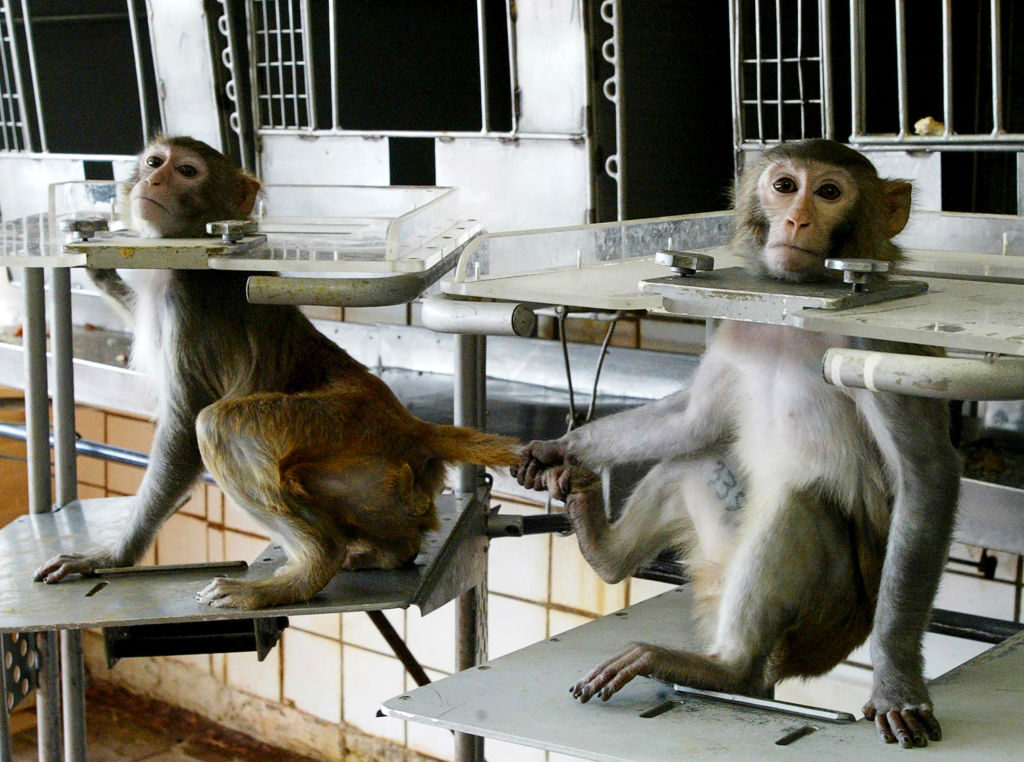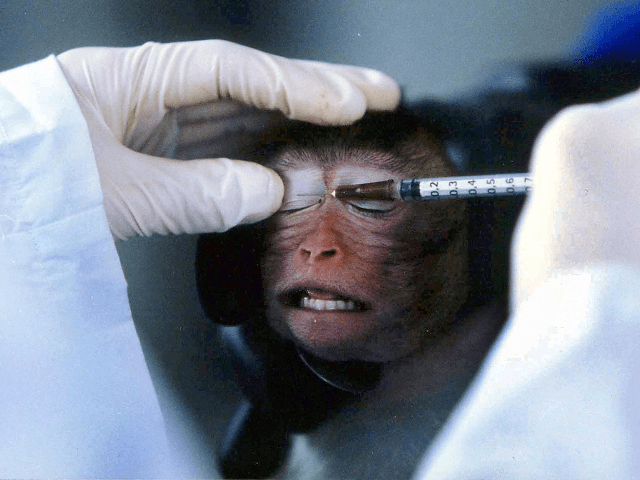The National Institutes of Health (NIH) has defunded animal labs in Russia following ongoing public pressure from the taxpayer watchdog White Coat Waste Project (WCW), but Sen. Joni Ernst (R-IA) warned the U.S. must stop funding all foreign labs “owned and operated by our adversaries like Russia and China.”
WCW detailed how this came to be, highlighting their Worldwide Waste investigation in 2021, which revealed that the NIH was sending millions to animal testing labs in Russia. The following year, WCW revealed that taxpayers sent $770,000 to the Pavlov Institute of Physiology.
Here, they conducted cruel experiments on cats, including one in which they deliberately brain damaged healthy cats and forced them to walk on treadmills.
Our shocking investigation prompted a media firestorm and swift and decisive action from lawmakers. Right after the case broke, Members of Congress, led by Rep. Lisa McClain (R-MI), sent a letter to President Biden citing our work and demanding the immediate cancelation of grants to Russian labs.
In April 2022, when Congress didn’t receive a response from POTUS, WCW worked closely with bipartisan lawmakers led by Reps. McClain and Elissa Slotkin (D-MI) who requested that the 2023 federal spending bill prohibit tax dollars from being sent to Russian animal labs.
The March 10, 2022, letter — sent weeks after Russia invaded Ukraine — highlighted the U.S. government’s “troubling history of sending U.S. tax dollars to adversarial countries for cruel and wasteful animal research and testing.” It added that foreign adversaries “should not be given U.S. tax dollars to conduct heinous animal research” and demanded “swift and decisive action to block any further U.S. tax dollars from going to Russian research labs.”
Months later, the White House announced it would “wind down institutional, administrative, funding, and personnel relationships and research collaborations in the fields of science and technology with Russian government-affiliated research institutions and individuals who continue to be employed by or work under the direction of those institutions” in the wake of the Russian invasion of Ukraine.
The NIH also confirmed to the Washington Times it “currently does not fund any research in Russia.”
Anthony Bellotti, Founder and President at WCW, highlighted the bipartisan consensus on these issues in an emailed statement.

File/Monkeys during testing at the Medical and Biological Problems Laboratory on April 15, 2003 in outside Moscow, Russia. (Dmitry Korotayev/Epsilon/Getty)
“Over 75 percent of Republicans and Democrats agree: taxpayers shouldn’t be forced to pay millions to Putin’s white coats to torture animals in wasteful experiments— and now, following our campaign, they won’t have to,” he celebrated, thanking the Biden administration for following through and Rep. Lisa McClain (R-MI) and Sen. Joni Ernst (R-IA) for helping lead the charge.
“Having led Congressional efforts over the past year to stop the flow of taxpayer dollars to Russia’s inhumane and unaccountable animal testing labs, I’m proud that the Biden Administration finally listened to reason and halted this wasteful and dangerous spending,” McClain, Chairwoman of the Oversight Subcommittee on Health Care and Financial Services said in a statement. She also said she plans to re-introduce the AFAR Act to “make sure that not a single tax dollar is sent to animal experimentation labs in Russia, China and other adversarial nations that want to harm us.”
Similarly, Ernst emphasized that more action must be taken.
“This is a great first step, but we need to claw back much more money,” the Republican senator said. “If the administration doesn’t stop funding foreign labs owned and operated by our adversaries like Russia and China, I plan to introduce legislation to do just that.”

COMMENTS
Please let us know if you're having issues with commenting.